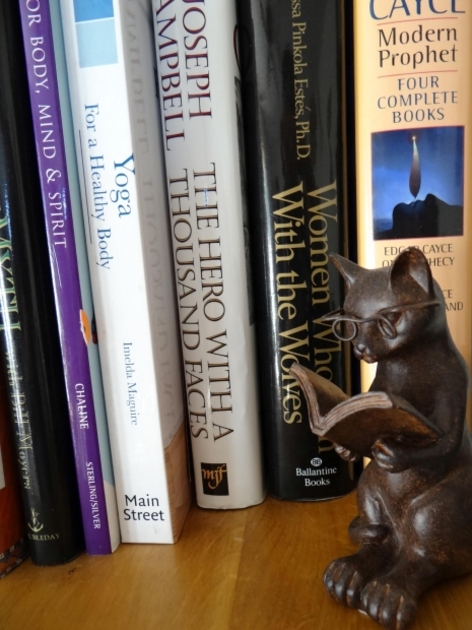
Happiness and The Twelve Steps
- "Happiness is an imaginary condition, formerly attributed by the living to the dead, now usually attributed by adults to children and by children to adults." - Dr. Thomas Szasz, Professor of Psychiatry at the State University of New York Upstate Medical University in Syracuse
- “Perhaps only 20 percent of Americans are happy” - Dennis Wholey, author ofAre You Happy?
- 6 weeks before he died, a reporter asked Elvis Presley, "Elvis, when you first started playing music, you said you wanted to be rich, famous and happy. Are you happy?" “I'm lonely as ever" he replied.
Elvis achieved all he had wanted. Americans enjoy wealth and conveniences that their ancestors only dreamed of. Dr. Szasz is a psychiatrist who discovered the well-known idea of Therapeutic State and authored “The Myth of Mental Illness.” His teachings and opinions appear in text books and are taught in graduate schools throughout this country and the world. Yet, each did not believe in the concept of happiness – or at the very least – had not achieved it.
Perhaps they had misconceptions about happiness and were looking for it in all the wrong places. Life, Liberty, and The Pursuit of Happiness – these are the three ultimate American ideals. We pursue happiness everywhere. It fuels our drive for money and wealth, we chase it in buying and renovating our homes. The pursuit of happiness influences the way we dress, speak, act, decide not-to-act and raise our children. For many of us, the pursuit of happiness is central to our daily lives. Yet, as illustrated above, happiness remains elusive and some have concluded that it does not exist at all.
We, as Americans, convince ourselves that “success” will bring happiness. Some define success in monetary terms – by how much money the person has. Others imagine that success comes with fame and recognition. Everyone has their own idea of success and the contentment it would bring.
We come to the holiday of Succos, Zman Simchaseinu - the Time of Our Happiness. We are meant to be in a state of joy on Succos but our contentment it is not meant to be born in a vaccum - it follows a period of hard work, significant effort toward self-improvement and getting our lives back-on-track.
The 12 Steps of addiction recovery is a painstaking, often difficult, journey toward personal development. Our avodah of Chodesh Elul and Yomim Noaraim runs along the same lines. First comes Rosh HaShana when we were “mamlich the melech” - accept HaShem as the King of the Universe and Ruler over ourselves. We turn our lives and our will over to His care and surrendered to His Higher Power. Over the 10 Days of Repentance we complete the task by making a fearless and searching moral inventory, humbly asking Him to remove our shortcomings, admitting the exact nature of our wrongs and becoming willing to make amends to people we have harmed. We make direct amends to such people whenever possible. Finally, we seek through prayer and meditation to improve our conscious contact with Him.
After all of this toil, we come to the Holiday of Succos, the Time of Our Happiness. Here we retreat into the simplicity of the Succah; there is no opulence, no great fame and no trappings of personal “success” in the Succah. There, we our spiritual awakening comes to fruition as we sit morally clean and at peace with HaShem, ourselves and our fellow man. This is how we achieve Simcha.
In Torah thought, happiness is earned, not pursued. It is a state of being that is gifted to us when we not only work the steps but live them. The Succah is a great place to start.
 Previous
Previous

